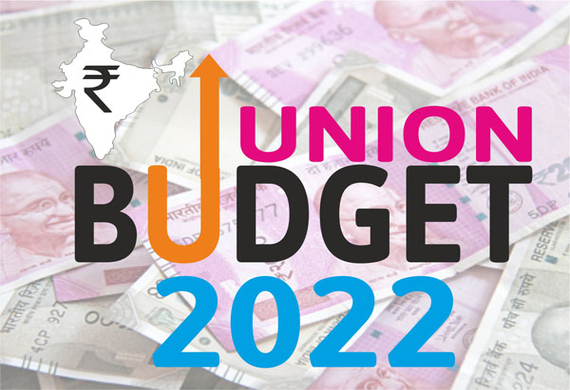
Women Entrepreneurs' Expectations from 2022-23 Union Budget
By: Rachita Sharma, Special Editor, WomenEntrepreneurIndia
February 1st is an important day for India. With the Union Budget being announced on the day, every Indian eagerly waits for the Finance Minister to walk into the parliament with the ‘Red Ledger’. With the 2022-23 budget announcement being just around the corner, there is an air of anticipation and expectation surrounding various segments of the country. Everybody expects the budget to bring in some piece of favorable news for them.
The business sector of India is one segment that eagerly awaits with an optimistic outlook for the budget to be announced. This year GST rationalization, simplifying rules for Capital gains tax, incentives of startups etc are some of the top expectations of SME and other smaller organizations.
However, the ambit of business landscape has now evolved to include an increasing number of women entrepreneurs and business leaders who have slightly different expectations from the budget. This year there is anticipation for the announcement of additional incentives and schemes specifically for women founded startups.
CA Ruchika Bhagat, MD at Neeraj Bhagat & Co, a New Delhi based CA, corporate financial advisory and tax consulting company says, “The Union Budget 2022-23 is likely to be shelved on February 1, 2022 by Union Finance Minister Nirmala Sitharaman, and I am hopeful that the upcoming Budget will give the economy a much-needed boost.
We are hoping that more money will be spent on capital expenditure and healthcare projects to help India become more integrated into the global supply chain. Sectors such as urban infrastructure, housing construction and manufacturing could receive further impetus in the budget. Defence, renewable energy, and infrastructure projects are expected to receive more funding. The budget is expected to include incentives for the localization of Defence products and the renewable energy industry, as well as budgetary support or legislative initiatives to encourage the adoption of clean energy.
Steps could also be announced to reduce tax litigation and concessions in direct taxes. On the direct tax front, several major concessions are being sought, similarly it is expected to reduce STCG Tax rate to 10% for resident investment to give impetus for investments in the debt segment and boost up the stock market.”
In terms of her expectations for the startup-ecosystem, Ruchika states, “A complex unfriendly capital gains tax system is a big reason why many Indian start-ups fail to sustain in the long run, so we believe that the government should look at assisting start-ups through policies and support mechanisms towards domestic capital participation, incentives to set up incubators in every state, tax exemptions in foreign direct investments, and a high focus on start-up infrastructure development.”
She goes on to speak for the hospitality sector, “As far as the Hospitality Sector is concerned, we are hoping that the government should offer interest-free loans, subsidies, reduction in tax structure, which will help in the recovery and covering up the previous losses as pandemic was particularly hard for this sector,”
She further adds, “The focus of this year’s Budget is expected to be growth-oriented. The government would prepare a balanced budget that would account for growth as well as revenue-generating options. Considering the impact of the current pandemic the budget should focus on general economic growth. I am optimistic that the upcoming budget would prepare India to march ahead and unleash its potential to the fullest in years to come. As like the other Indian citizens, I too have a lot of hopes with 2022 budget, especially to boost the recovery from long pandemic.”
Similarly, Mumbai based entrepreneur and CEO of Chicnutrix, Shilpa Khanna Thakkar weights in, “The make in India or Be India Buy Indian should be the key focus. India has emerged as a land of opportunities where we are constantly witnessing a lot of start-ups flourishing. Quite a few successful start-ups have been spearheaded by women. There is still a gap of financial support and literacy that becomes an obstacle. Efforts need to be taken to support and mentor these entrepreneurs. Investing in home-grown start-ups and brands will make them more independent. Also, consumption of Indian products will boost the economy and make the grass greener. Investors and government bodies should allocate funding that supports sustainable businesses. With health and wellness taking center stage, there should be a relaxation of taxes on essential wellness products. Encouragement to use wellness and nutrition products will boost the demand which is another factor leading to the growth of start-ups.”
Speaking on the same lines, Anika Parashar, Founder & CEO, The Woman Company adds, “The Union Budget should emphasize Women's wellness - especially menstrual hygiene. We already have tax exemption on sanitary pads, however, this could be extended to manufacturing and production. Further, decreasing import duties for raw materials could bridge the gap between supply and demand as well as encourage more Indian manufacturers to start manufacturing biodegradable pads in the country. There should be policy-level incentivisation for ‘Made In India’ products, start-ups helmed by women, and ventures that focus on sustainability and solving women's issues. The Government should promote the use of biodegradable menstrual products to bring down waste produced by plastic products – a figure which currently stands at a staggering 12.3 billion annually. We also expect the government to improve digital infrastructure in Tier II, III cities, and rural regions so that the next group of consumers can enter the D2C ecosystem.”


.jpg)



